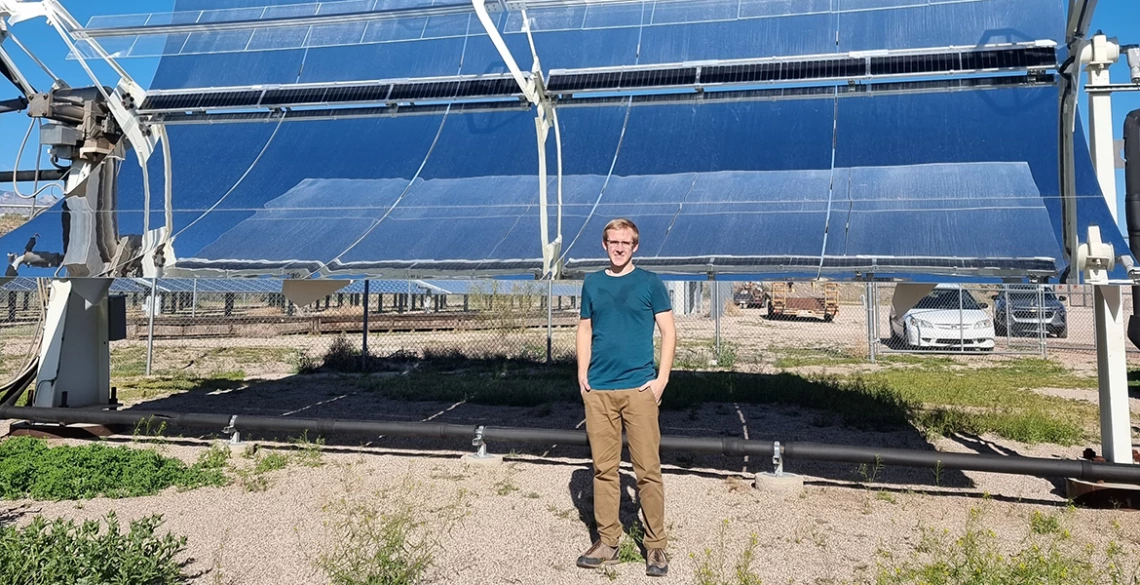Fellowship Empowers CHEE Graduate Student to Develop Sustainable Water Technology
The Engineering Dean’s Fellow contributes to finding sustainable solutions to water scarcity.

During Jeb Shingler's 18-month stint as a solar electrician in Tucson, the work he did sparked a passion for renewable energy. Shingler followed his passion to the University of Arizona College of Engineering and plans on combining his solar skills with environmental engineering to address a critical resource in Western states: water.
“I want to use the skills and knowledge I am gaining to develop new technologies to assist communities with practical solutions for water and energy security,” said the 2023-2024 Engineering Dean’s Fellow.
Shingler, a CHEE doctoral student who also earned his master’s degree in environmental engineering at the UA, is developing a hybrid membrane system that produces freshwater from saltwater.
The system is powered by photovoltaic panels – which convert thermal energy into electricity – and solar panels, which convert solar radiation into heat. The energy produced by these panels drives the distillation process.
Shingler will also investigate how the technology handles fluctuating solar power due to weather changes; the addition of automatic system controls and thermal efficiency.
His project, Water Resiliency and Self-Sufficiency in the Arid Southwest, is funded by the U.S. Army Engineer Research and Development Center.
Labs located at the Water and Energy Sustainability Center – collocated with the Pima County Water Reclamation Facility – offer Shingler a unique opportunity to work with wastewater and reclaimed water.
“I chose the UA because I have the opportunity to conduct research I am passionate about at a place that is truly one of a kind,” said Shingler.
The fellowship allows Shingler to take programming classes to develop more advanced simulation models for his research.
David W. Hahn, the Craig M. Berge Dean of the college, funds the Engineering Dean's Fellowship with the help of the Craig M. Berge Deanship along with donor support through the annual Dean's Fund for Excellence. The fellowships expand the college’s doctoral program by providing multi-year salary and stipends to exceptional early-career PhD students.
“The recipients of our graduate fellowships are some of the most outstanding applicants to our graduate programs,” said Kelly Simmons-Potter, the college’s associate dean for academic affairs.
“The ability to provide research fellowships to these students can be a critical factor that enables them to pursue their graduate educational and research goals, to the benefit of both their careers and the broader fields of engineering.”
